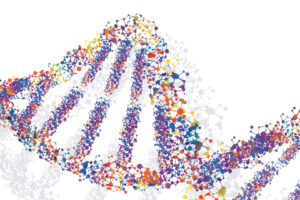After 18 years as a Staten Island bus driver, Middletown resident Chad Frontera finally had his work schedule align with one of the yearly free health screenings offered by the New York City Transit System union.
“I never had an indication of any thyroid issues, and I had no reason to get this test – I just did it because they were there,” recalls Chad, age 50, a former minor league baseball player for the San Francisco Giants. “But the second the screening nurse put the scope on my neck, I knew something was wrong.”
The screening team explained that they found a nodule on the right side of Chad’s neck and recommended he see an endocrinologist. Upon seeing the specialist, Chad discovered thathe had not one, but two nodules – and a biopsy showed the larger one to be cancerous.
Unable to biopsy the smaller one, the endocrinologist suggested removing the cancerous nodule and treating the other with medication. Chad, a self-proclaimed thorough researcher, sought out a second opinion.
“Before this all happened, I didn’t realize the thyroid was so important,” explains Chad. “I researched the disease on my own and read up on the doctors who specialize in thyroid cancers. That’s how I found Dr. Shifrin.”
A Closer Look
Alexander L. Shifrin, MD, surgical director of CentraState’s Endocrine Program, was able to perform a biopsy on the smaller nodule as well. After
reviewing the scan and biopsies on the nodules, Dr. Shifrin suspected both were cancerous and recommended removing the whole thyroid.
“If we know that there’s a suspicious nodule that could be cancerous, the other is likely to be as well,” says Dr. Shifrin. “It’s beneficial to investigate both.”
“Even though I was uncertain about whether the whole thyroid needed to come out, my gut said Dr. Shifrin was the right doctor for me, so I trusted him,” says Chad. “And in the end, he was right. Both nodules were cancerous.”
According to Dr. Shifrin, studies over the last 10 to 20 years show that most thyroid cancers have been attributed to smaller nodules that would likely have grown bigger and spread the cancer.
Despite the evidence, however, thyroid cancer is often missed or mistreated.“Primary care providers can feel for issues, but they need to be addressed by endocrinologists with thyroid cancer experience,” says Dr. Shifrin.
Chad’s thyroid procedure was performed as a same-day outpatient surgery using the smallest possible incision and surgical glue rather than stitches, meaning no drains, tubes, bandages or dressing changes.
Now, aside from taking daily medication to keep his metabolism working, his life has returned to normal. “The hardest thing about recovery is remembering to take the medicine,” he says. “But other than that, I feel pretty good.”
A year later, this husband of Camille and father of four celebrates his home-run victory over thyroid cancer every day.
ENDOCRINOLOGY SERVICES AT CENTRASTATE
To learn more, visit our endocrinology services page.





